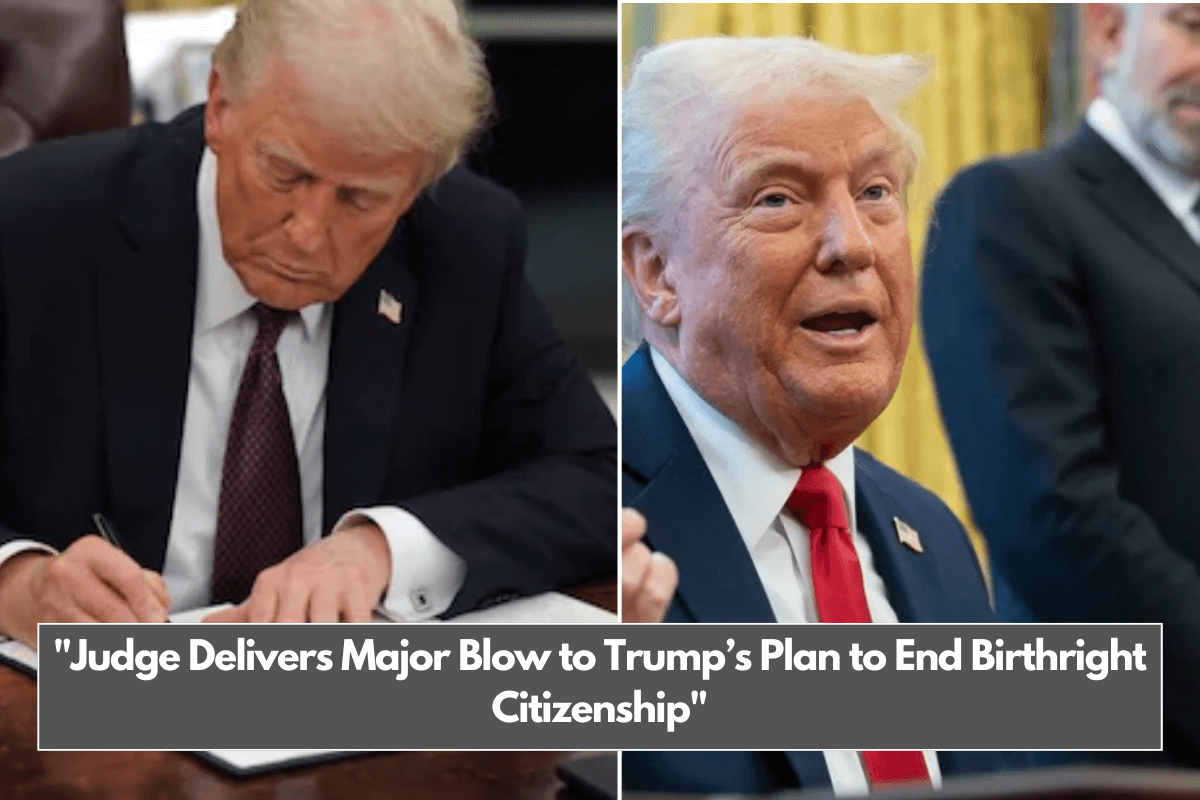A US federal judge has halted former President Donald Trump’s attempt to end birthright citizenship for children born in the US to parents who are undocumented or in the country temporarily. The decision preserves a long-standing constitutional right that automatically grants citizenship to nearly all babies born on American soil.
Judge’s Ruling: Birthright Citizenship Upheld
Maryland District Judge Deborah Boardman ruled against Trump’s executive order, stating that birthright citizenship is rooted in the country’s legal tradition:
“Today, virtually every baby born on US soil is a US citizen upon birth. That is the law and tradition of our country.”
The ruling extends a pause on Trump’s January 20 executive order, delaying its enforcement while the legal case unfolds. Experts predict the legal battle could last months or even years. Although the Trump administration is expected to appeal, this ruling serves as a temporary safeguard for many families.
What Was Trump’s Executive Order About?
Trump’s executive order, set to take effect on February 19, sought to end automatic citizenship for babies born in the US if neither parent was a US citizen or a lawful permanent resident. The administration framed this order as part of its strategy to curb illegal immigration and address issues at the southern border.
The heart of the legal challenge revolves around the 14th Amendment to the US Constitution, which states:
“All persons born or naturalized in the United States, and subject to the jurisdiction thereof, are citizens of the United States.”
Key Legal Dispute: How to Interpret the 14th Amendment
The Trump administration argues that this clause should exclude children of undocumented immigrants and temporary visitors. However, Judge Boardman ruled that courts have consistently interpreted the 14th Amendment as granting birthright citizenship to children born on US soil, except for specific cases like children of foreign diplomats.
She stated:
“The United States Supreme Court has resoundingly rejected the president’s interpretation of the Citizenship Clause of the 14th Amendment. In fact, no court in the country has ever endorsed the president’s interpretation. This court will not be the first.”
Why Conservatives Oppose Birthright Citizenship
Conservatives have long argued that birthright citizenship encourages illegal immigration and supports “birth tourism”, where foreign individuals come to the US temporarily to give birth, ensuring their child gains American citizenship.
Critics claim that this creates a loophole that can be exploited, potentially leading to chain migration, where family members of the citizen can later gain residency.
However, proponents of birthright citizenship stress that the practice ensures fair treatment of all children born in the country, regardless of their parents’ legal status.
Legal Challenges and Nationwide Impact
The ruling in Maryland follows a temporary restraining order issued by a federal judge in Seattle, who called Trump’s order “blatantly unconstitutional.” That restraining order will expire soon, but further hearings are expected to maintain the block on Trump’s policy.
The legal pushback is being driven by immigrant rights groups and state attorneys general, who argue that denying birthright citizenship would affect over 150,000 babies each year. The Maryland case specifically involves five pregnant women represented by immigrant advocacy groups.
One of the women, using the pseudonym Trinidad Garcia, expressed relief after the ruling:
“All I have wanted is to focus on my baby being born healthy and safe, but instead, I have been worried that they will be denied a right that is guaranteed under the Constitution—the right to be a US citizen.”
For many expectant mothers, the ruling provides temporary relief, though the long-term outcome will depend on future court decisions.
Why This Ruling Matters
The decision to block Trump’s executive order underscores the importance of birthright citizenship as a core principle of American identity. The 14th Amendment, adopted after the Civil War, was designed to guarantee that all individuals born in the US, including freed slaves and their descendants, would be recognized as citizens.
If Trump’s interpretation were upheld, it could dramatically alter immigration policies and the legal definition of citizenship, potentially impacting millions of families across the country. As it stands, the federal judge’s ruling keeps this long-standing right intact, but the legal battle is far from over.
This case highlights a larger debate about how immigration policies and constitutional rights should evolve in modern America. As Trump’s legal team prepares to appeal, many families wait anxiously for the final verdict.
The ruling not only affects undocumented or temporary immigrants but could redefine who gets to claim the rights and privileges of US citizenship.
